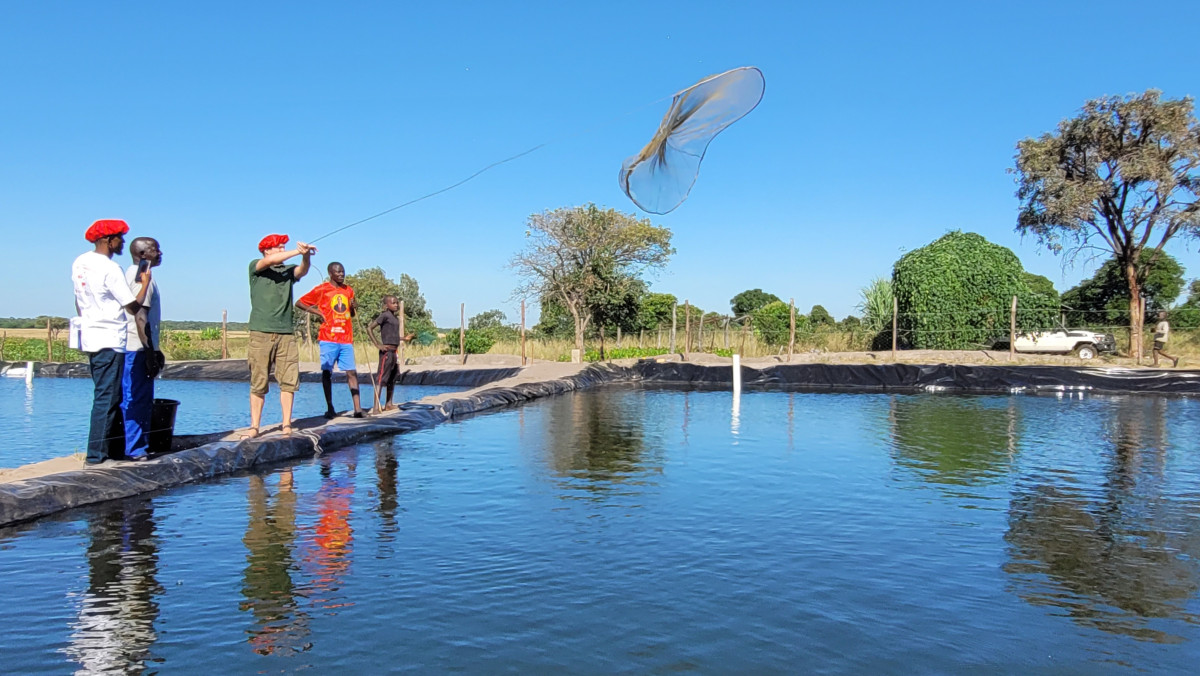Pioneering the Use of Bio-Slurry for Aquaculture in Western Zambia
Published: May 31, 2024 Reading time: 3 minutes Share: Share an articleIn the pursuit of sustainable agriculture and community resilience, a remarkable pilot initiative is underway in Litoya, western Zambia. Led by People in Need’s project in collaboration with the Czech University of Life Sciences (CZU), this endeavour aims to explore the potential of bio-slurry as a fertiliser in aquaculture.

Bio-slurry, a nutrient-rich byproduct of the anaerobic digestion process used to produce biogas, has been employed as an organic fertiliser for agriculture. However, its application in aquaculture remains largely unexplored, presenting an exciting opportunity for innovation and resource optimisation.
At the heart of this pilot project lies a demonstration site featuring two fishponds. 2,500 fingerlings were divided equally between the two ponds, setting the stage for a groundbreaking experiment to assess the performance and productivity of bio-slurry as a pond fertiliser compared to conventional manure.
This pilot project aims to address several key challenges and knowledge gaps. Firstly, it seeks to evaluate the impact of bio-slurry on fish growth and productivity, potentially paving the way for a cost-effective alternative to commercial fish feed. Secondly, it will assess the nutrient content and effectiveness of bio-slurry in comparison to traditional manures used in aquaculture.
The experimental setup involves stocking both ponds with equal numbers of fingerlings. Rigorous monitoring and data collection will be conducted, including measurements of water transparency, temperature, fish weight, and nutrient levels. These parameters will provide valuable insights into the performance and productivity of each pond throughout the project.
By closely tracking these key parameters, the potential benefits of using bio-slurry as a fertiliser in aquaculture are numerous. We anticipate that bio-slurry, with its rich nutrient composition, could outperform traditional manures, leading to improved fish growth and yield. Additionally, the utilisation of bio-slurry could significantly reduce the reliance on expensive commercial fish feed, thereby lowering production costs for small-scale farmers.
If successful, the use of bio-slurry could revolutionise small-scale aquaculture in the region, aligning with the project's broader goals of alleviating poverty, improving nutrition, and increasing incomes for vulnerable farmers.
The pilot project's innovative approach to repurposing a waste byproduct from biogas production could pave the way for a more circular and sustainable aquaculture model, contributing to the region's food security and economic resilience.



